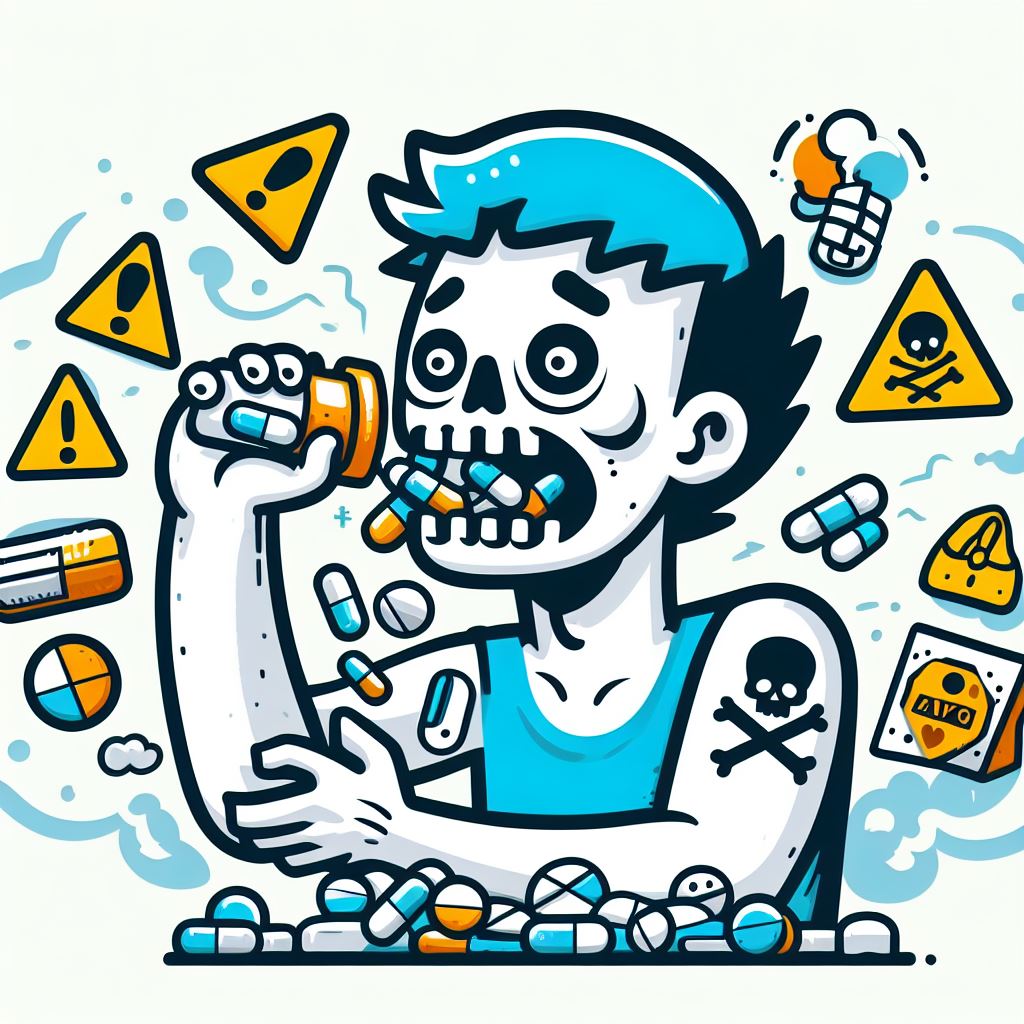Self-medication, a practice that is becoming increasingly common involves taking medication without consulting a doctor. While it may appear convenient and cost effective this trend poses public health concerns.
I. Understanding Self-Medication:
Self-medication entails using medications, over-the-counter ones, to alleviate symptoms like headaches, coughs, or muscle pain.
This behavior has grown due to the access to information online sometimes leading to an overreliance on self-diagnosis.
II. Consequences of Self-Medication: A Threat to Health:
Although self-medication is often seen as a simple solution for managing ailments it carries substantial health risks.
The greatest danger lies in self-diagnosis since individuals without expertise can easily misinterpret symptoms and make choices regarding treatment.
This practice increases the risk of exacerbating conditions and delays diagnosis and appropriate medical intervention. Repeated or inappropriate use of medications available without a prescription can result in undesired side effects.
These effects may vary from discomfort to complications that impact one’s quality of life and might even necessitate immediate medical attention.
III. The case of antibiotics:
The unregulated use of antibiotics is particularly worrying. Self-medication with these drugs promotes the emergence of resistant bacterial strains, reduces the effectiveness of available treatments, and endangers health.
Even more worrying, this antibiotic resistance represents a growing public health challenge and makes it much more difficult to treat previously easily treatable infections.
Taking antibiotics to self-medicate can also lead to dangerous drug interactions, especially in people who are already taking other treatments.
These interactions may reduce the effectiveness of the medication or cause unexpected reactions.
IV. Impact on the healthcare system:
Self-medication may seem like a convenient solution, but it can have detrimental effects on the healthcare system. Here are some key considerations:
1. Misdiagnosis risks:
When individuals self-medicate, they may misinterpret their symptoms, leading to an inaccurate diagnosis. This can cause delays in receiving appropriate treatment and potentially worsen the condition.
2. Complications and side effects:
Without guidance from healthcare professionals, self-administration of medications can result in unwanted side effects or dangerous interactions with other drugs.
3. Emergencies overload:
Inadequate self-medication can lead to complications that prompt more visits to emergency services, further burdening an already strained system.
4. Increased costs:
The complications arising from self-medication can result in additional healthcare expenses, both for the individuals involved and for the healthcare system as a whole.
Hence, it is crucial to advocate for consultations with doctors and healthcare specialists to ensure accurate diagnosis and appropriate treatment. Moreover, raising public awareness about the risks associated with self-medication is equally important.
V. Prevention and education:
It is important to make the population aware of the risks of self-medication. Particularly in the case of persistent or severe symptoms, information campaigns should be carried out to encourage medical advice before taking medication. Below are some strategies for running information campaigns effectively:
1. Public awareness campaigns:
Use various media such as television, radio, social networks, and posters in public places to spread clear and concise messages about the dangers of self-medication.
2. Education in schools:
Integrate education about responsible medication use into school programs to impart this knowledge at an early age.
3. Collaborate with Health Professionals:
Involve physicians, pharmacists, and other health professionals in disseminating reliable information and raising awareness among their patients.
4. Set clear guidelines:
Offer brochures or websites that provide advice on when to see a doctor and how to safely use over-the-counter medications.
5. Testimonials and Case Studies:
Share real stories of people who have suffered the negative effects of self-medication to concretely illustrate the risks.
6. Government and Regulatory Support:
Obtain the support of health authorities to reinforce the message and potentially regulate the advertising and sales of certain medications.
These collective efforts can go a long way toward reducing the risks of self-medication and promoting safer medication use.
Conclusion:
Self-medication, despite its practical aspect, is a risky practice that can have serious consequences for individual and collective health. Greater awareness and easier access to medical care are essential to limit the negative effects. It is important to always consult a doctor before taking any medication, especially if you experience new or severe symptoms.

